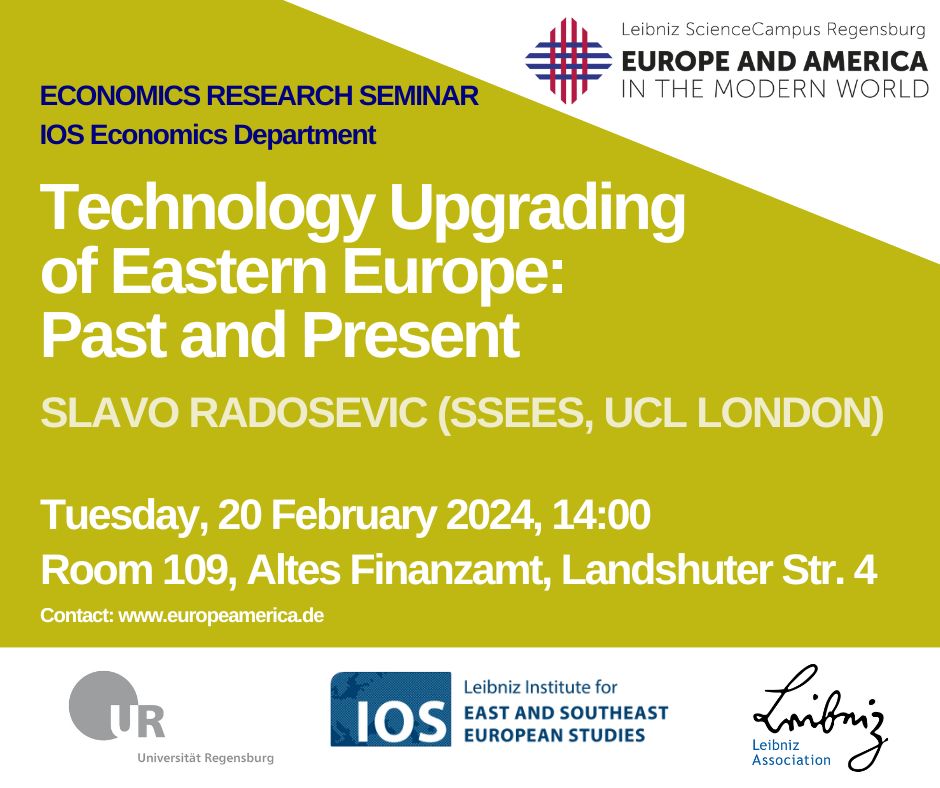IOS Economics Seminar | 20 February, 14:00 | Slavo Radosevic (London) | Technology Upgrading of Eastern Europe: Past and Present
When? 20 February 2024, 14:00
Where? Room 109, IOS Regensburg, Landshuter Str. 4
We are thrilled to welcoming Slavo Radosevic, Professor of Industry and Innovation Studies at the School of Slavonic and East European Studies (SSEES) at UCL, as a LSC visiting fellow throughout February.
As part of fellowship, he will give a talk on Technology Upgrading of Eastern Europe: Past and Present.
This event is part of the IOS Economics Department Research Seminar Series. Please register here.
Abstract:
The presentation aims to test my approach in the ‘Grand Synthesis’ & ‘Work in Progress’ book. The point of departure is that innovation is not only techno-economic but also social and political processes. By taking this neo-Schumpeterian perspective, I address four issues. First, East European transition, post-transition, the innovative enterprise and the industry landscape. Second, building innovation systems or (mis)alignment of different parts of the national innovation systems. Third, key alignment for catching up: EE/fSU between foreign and domestic-led modernization. Fourth, the evolution of meanings of ‘transition’ and lessons. The argument builds on my 2022 Research Policy paper and subsequent research.
Slavo Radosevic:
Slavo Radosević is Professor of Industry and Innovation Studies at the School of Slavonic and East European Studies (SSEES) at UCL since 2006 where he has also been acting director of the SSEES. In his research, he explores in particular issues of growth and structural change through innovation systems, entrepreneurship, international business and innovation policy perspectives, with particular reference to central and eastern Europe. He acts as an expert for the EC, OECD, UNESCO, UNIDO, World Bank, UNECE and Asian Development Bank and several governments in CEE. He also had significant policy-making experience in Croatia and ex-Yugoslavia at the highest policy level.

